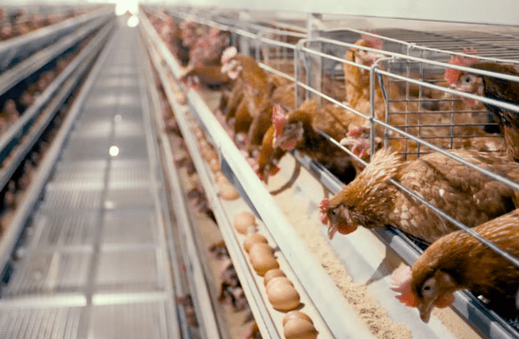
Imported soymeal features in many layer rations. Photo: Australian Eggs
RESEARCH into strategies for layer hens nutrition, conducted by the University of Queensland, may now help egg farmers across the country further reduce their environmental impact through the diet formulations they feed their hens.
Funded through a partnership with Australian Eggs and Australian Pork, a carbon assessment of the egg industry conducted in 2021 identified that the highest contributor of carbon to the supply chain is the feed hens eat.
In particular, soybean meal which is used to provide hens with required protein has a relatively high carbon footprint as it has increasingly been sourced from South America and shipped to Australia.
The exploration of feed alternatives became one of the best opportunities for carbon reduction, prompting Australian Eggs to invest in research into alternative ingredients that promoted sustainable production for laying hens and pig diets.
Now at the conclusion of this research, insect meal such as Black Soldier Fly larvae, canola meal, and lupins have been identified as the most viable alternatives to soy in the layer hen diet.
It is understood that insect meal is one of the most promising alternate-protein sources for addressing the global protein meal-production challenge due to its high nutrient value and low environmental impact for cultivation.
Black Soldier Fly technology is growing and already being explored in the Australian egg industry through a collaborative research project with Australian Pork.
Australian Eggs managing director Rowan McMonnies said the Australian egg industry was working hard on producing more sustainable eggs with a lower carbon footprint.
“This research will help take the next step encourage on-farm adoption of alternate proteins and carbon-reduction pathways,” Mr McMonnies said.
Leading research into the egg-layer and pig diets was UQ senior lecturer in animal science and production Dr Elham Assadi Soumeh.
“It is clear that sourcing quality and sustainable feed ingredients at acceptable prices has become the major challenge for the industry,” Dr Soumeh said.
“Finding alternatives that are lower-carbon solutions seemed difficult in the early stages, but it is pleasing to see there are some viable options to start further exploring.”
Source: Australian Eggs



HAVE YOUR SAY